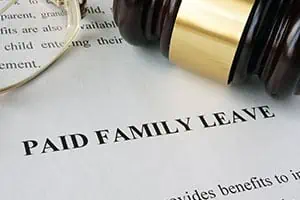Employment Law

On November 16, 2016, the New York City Mayor Bill de Blasio signed, into law, the New York Freelance Isn’t Free Act, Local Law 140 of 2016 (the “NYCFIFA,” the “Freelance Isn’t Free Act,” “Local Law 140,” or the “Act”), which, effective May 15, 2017, greatly strengthens the rights and remedies of independent contractors (also referred to in this article as…Read More

Effective October 31, 2016, a new statute requires a 90-day retention period for food service workers in Manhattan, NYC in venues such as corporate cafeterias, arenas and cultural institutions when a food service contractor is terminated. After 90 days, the new contractor must evaluate the workers and must retain them if they are deemed satisfactory. Specifically, on October 31, 2016,…Read More

Who Is Protected From Unlawful Harassment? New York State law protects both men and women from harassment in the workplace, and bars both heterosexual and homosexual harassment at work. Sexual harassment may include the harassment of women by men, men by women, men by men, and women by women. Two Types Of Workplace Harassment There are two types of workplace…Read More

On September 7, 2016, the New York State Department of Labor (the “Department of Labor,” the “Department,” or the NYS DOL”) issued a regulation requiring employers in Manhattan, NY, in order to pay wages to workers by direct deposit or by payroll debit card, to obtain the workers’ written consent. Further, the new regulation (also referred to herein as the “new rule”) sets forth numerous other…Read More

On April 4, 2016, New York State Governor Andrew M. Cuomo signed into law a bill, N.Y. State Senate Bill No. 3004-A, N.Y. State Assembly Bill No. A. 3870A (the “paid family leave law” or the “new law”) which, effective January 1, 2018, requires all private employers in Manhattan, NYC and many public employers in Manhattan, NYC to allow employees to take, and…Read More
Effective January 1, 2016, a new statute requires non-governmental employers with 20 or more full-time employees in Manhattan, NYC to offer full-time employees the opportunity to use pre-tax earnings to purchase qualified transportation fringe benefits, other than qualified parking, in accordance with federal law. Also effective January 1, 2016, under federal law, an employee may elect to use a maximum…Read More
On June 29, 2015, the New York City Mayor Bill DeBlasio signed, into law, the New York Fair Chance Act, Local 63 of 2015 (the “Fair Chance Act,” the “NYCFCA,” “Local Law 63” or the “new Law”), which takes effect on October 27, 2015. The Fair Chance Act prohibits most employers in Manhattan, other than employers in the securities industry, from…Read More
Whether a business in New Jersey must offer or provide health insurance to its employees depends on the number of workers that the business employs. In general: Employers in New Jersey with 50 or more employees must provide "minimum essential" health care coverage for employees who work 30 or more hours per week or must pay an annual penalty; Businesses in the Garden State with…Read More
Because it is unsettled who -- the employer or, instead, the employee -- bears the burden of showing that an employee has worked the 1,000 base hours, during the immediately preceding twelve-month period, that render the employee eligible for leave under the New Jersey Family Leave Act, N.J.S.A. §§ 34:11B-1- 34:11B-16 (the “NJFLA”), employers in New Jersey are best advised to maintain true and accurate…Read More
In Manhattan, a worker who, “without good cause,” voluntarily leaves his employment is disqualified from receiving unemployment insurance benefits. N.Y. Labor Law § 593(1)(a). A worker who quits his job because his employer in Manhattan has moved to a location which is further away from the worker’s residence may or may not be found to have voluntarily left his employment…Read More
